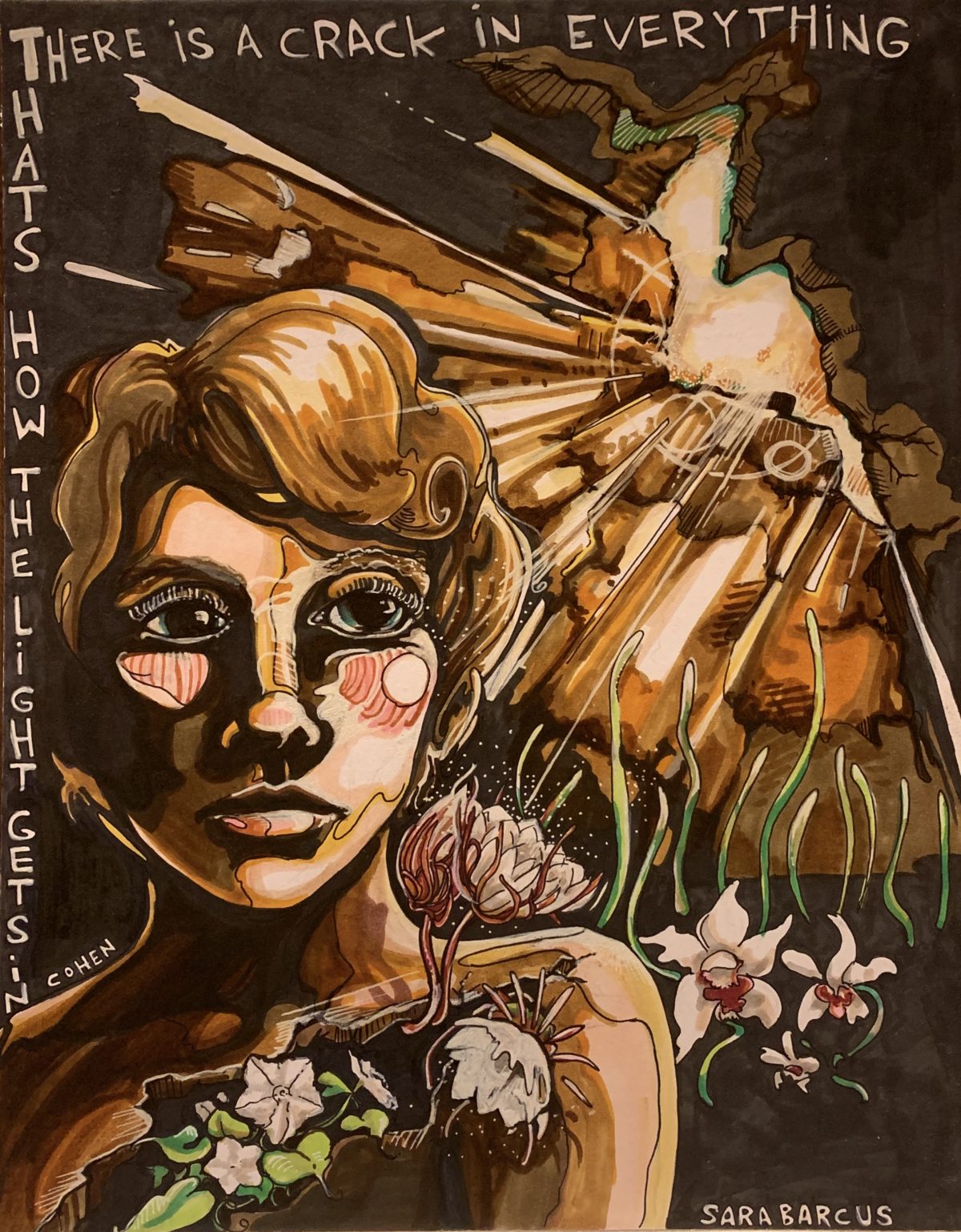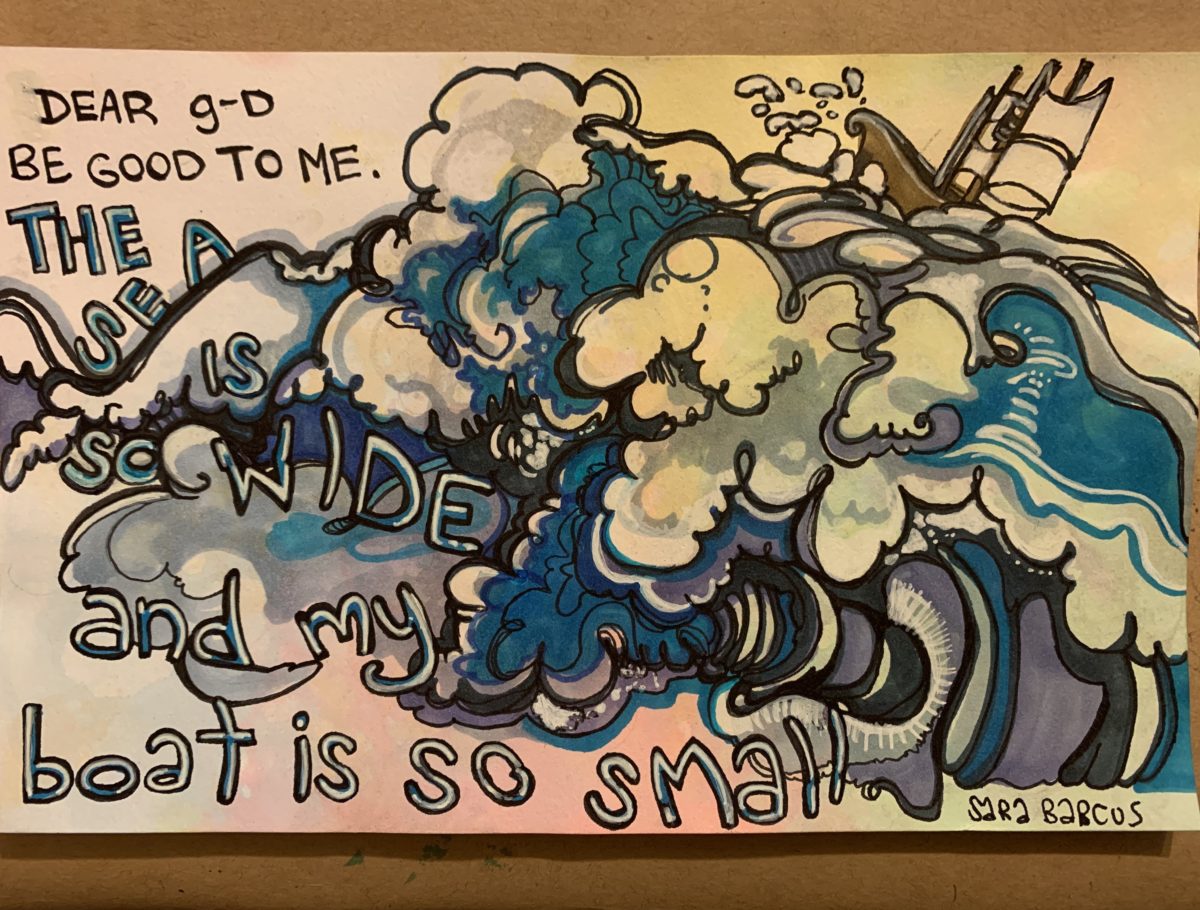Everything comes from everything and
Everything is made of everything and
Everything returns to everything.
Leonardo diVinci

The entire concept of a belief system is personal. Belief systems, themselves, are neutral and not all belief systems are *religious*. Humans have a tendency, though, to become so entwined in what a belief tells us is *good*, that we can’t see all of the complexities of an issue. When belief tells us we are serving an ultimate good, our brains can manipulate our morality and justify unconscionable acts in the name of that “good”. We all must be aware that *good* (and bad) is much more complicated than that and a guidebook could never adequately address every nuance of experience.
The concept of Existential Hope is not, in most senses, a belief system. It doesn’t deny any other belief system; but is equally critical of actions against others carried out because of any belief system. Existential Hope adapts concepts and coping practices from many different organized belief systems, philosophies, and scientific disciplines. It seeks to provide ways to foster hope, connection, and a sense of purpose in a world of large numbers. As all belief is a personal thing, the following will include aspects that are personal to me. Talking about existential hope requires the use of storytelling and, by analyzing human history, behavior, and thought processes, we can synthesize a genuine meaning for ourselves while considering that meaning may be different for others. As there is no intended set way to reconcile these concepts in our lives or practice the principles; if *my* way doesn’t jive with you, I encourage you to look at what is here and look for similarities. Even if what I present does click with you, I encourage you to adapt these in ways that *connect you* genuinely to the ideas.

Became a spark : a creation story for atheists, agnostics, and everyone else.
Became a Spark is a creation story of existential hope. It is (and could never be) *the* creation story for existential hope, but a new concept of “belief” needs a good origin story.
Key Principles of Existential Hope:
-The Ersatz Creator: with existing evidence of how the natural world functions; Nature, physical processes, wonder of the macrocosmic and all the microcosms. A “deity”-replacement is not necessary, but the concept of life being governed largely by forces beyond our control and complete comprehension is a necessary element of gaining perspective and functioning within *hope*.
-limitations of power
-circumstance will and inevitability
-community and connection: who we are and the roles we play.
-locus of control
– Permanence infinity paradox: if immortality is the aim, our focus should be on successes we could never see (endgame: promoting life). Therefore, immortality is not a function of permanence, but of cultivating *life* and contributing to something that will outlive us.
–embracing the inevitability of our faults and flaws; knowing that we could never possibly understand everything and that knowing everything is not desirable. Once the concept of perfection has truly been shattered, we can see our progress. We worry about not having reached the next step yet without even taking a look at the six steps we just rocked. By those standards…when, exactly, is success?

-humility of imperfection and recognizing we all share in it/human needs/understanding
–Scaling success (and everything fucking else) -Storytelling: Story telling is a key element of humanity. To share experiences with each other, to connect to an idea or experience through the words of others, to hope to communicate what we have learned and connect with others; these are vital for human *being*. Listen to the stories that others share and don’t be afraid to share our own when it could help.
–support, gratitude, compassion
-“prayer”/psycholinguistics/mindfulness: the concept of focusing attention on solution, support, and trust in a positive outcome; these things all serve to help calm our brain’s in uncertainty. Prayer is proven to work…in helping the pray-er. Engaging in the same elements of attention, feeling supported, and hope/belief in a positive outcome in more secular ways is a benefit that many atheists and agnostics overlook. Personal mantras and positive affirmations, mindfulness and meditation, spirituality: these have all been over-marketed to a point where it is difficult for me type them out as sound advice. However, set aside any preconceived ideas about what “prayer” or “meditation” or “spirituality” are, the underlying principles of these things are valid aspects of coping with anything *too big*. How these things look, functionally, in our life is our own business. The following are some things that I use/have used as “prayer”:
- “please”, “thank you”, “give me strength/grace”
- I talk to my Dad: “the brain is a place. Mine is a place I go and my father is still there…”
- evidence-based mindfulness and meditation practices (more in this section)
- Positive self-talk and psycholinguistics: our words are our thoughts. How we speak shapes how we think…this is why sensationalized news hits us so viscerally…word choice. But the language we use shapes our perception and experiences. It is only to be aware of *how* we use language to construct our thoughts. …I hate doing the dishes. There is nothing enjoyable about doing the dishes. I’m much less annoyed about doing the dishes if I remind myself that ” I get to have clean dishes to use”. It sounds silly, and it feels unnatural at first….but it works. Because brains are responsive to emotionally charged words and phrases.

–frivolity: “frivolity is the species’ refusal to suffer”
There are an abundance of organized belief systems, philosophies, self-help strategies, and self-proclaimed gurus. They each “work” to some degree for some people. And there are so many that you may be wondering why I have bothered to outline “mine”. I have wondered that as well. I am very much the kind of person who points folks to helpful things when they exist and there are many references and adaptations involved in this paradigm. In looking for ways to connect and cope, though, I often found that each of them has some requirement or necessary admission which cuts off groups of people or renders the concept useless for specific experiences. It is problematic, in this sense, to continue to create more specific labeled categories and seek to “specialize” the elements and principles of healthy coping to various situations and populations. My intention here is to do the opposite. I hope to present the principles themselves, with no attachments, so that anyone can examine them and find their own meaningful way to incorporate those concepts and tools into their own lives. Any strategies or recommendations are more given as *examples*, not strict guidelines or practices. They are parts of stories that spoke to me, from the point where I stand, here, with my experiences and my perspective. I hope they help you further understand your own experiences, perspective, and that point where you stand.
We are each the center of a unique and special universe and totally insignificant specks of cosmic dust.
-Leonardo diVinci
Recommended reading, watching, following:
- Man’s Search for Meaning by Victor Frankl
- Finite and Infinite Games by James P Carse
- The Boy, The Mole, The Fox, and The Horse by Charley Mackesy
- Jonathon Livingston Seagull by Richard Bach
- You Are Stardust by Elin Kelsey and Soyeon Kim
- The Spirituality of Imperfection by Ernest Kurtz and Katherine Ketchum
Notes:
- I’ve chosen to write out “g-d” as such to be able to use the overall concept of a deity while not specifically addressing anyone’s personal idea of a g-d
- “Existential Hope” is just how I was abbreviating the concept in notes and it stuck. There is no bigger meaning to it and it isn’t an actual *thing* outside of my own understanding
- A lot of terms necessary for communicating these concepts are often associated with things of pseudoscience or metaphysics. While the concept may be similar (or sound similar), existential hope has no association with those concepts.
- Nothing contained within should offend the religious and nothing contained within should cause the reader to feel “superior” to anyone of specific faith. If I have been unclear and something reads that way, please let me know so I can fix it.